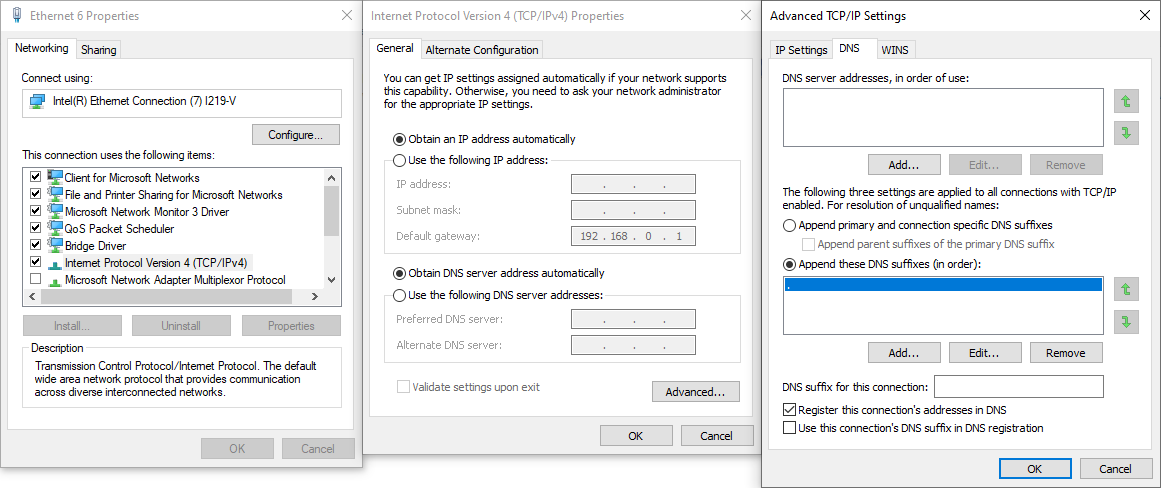My current ISP is SFR with an FTTLA connection, sometimes called “fake fiber” (client-side is coaxial): this is the historical Numerical network, the two having merged in 2014.
No complaints about quality of service, however relative DNS requests are systematically suffixed with numericable.fr, no matter which DNS server is specified:
> nslookup busseneau.fr 8.8.4.4
Server: dns.google
Address: 8.8.4.4
Non-authoritative answer:
Name: nc-ass-vip.sdv.fr
Address: 212.95.74.75
Aliases: busseneau.fr.numericable.frLooking at network configuration (Windows in this case), we do see the DNS suffix:
> ipconfig /all
Windows IP Configuration
DNS Suffix Search List. . . . . . : numericable.fr
Ethernet adapter Ethernet:
Connection-specific DNS Suffix . : numericable.frThis suffix is pushed to the client by the DHCP server, and it is not possible to change it from the router interface. Hence, all relative DNS requests will implicitly be suffixed and fall into DNS wildcard *.numericable.fr pointing to nc-ass-vip.sdv.fr.
It does not interfere with normal use, as applications (e.g. browser) will use absolute domain names, and not relative ones. To be considered absolute (FQDN), a domain name must form a complete chain up to the DNS root (.), and therefore end with a dot:
> nslookup busseneau.fr. 8.8.4.4
Server: dns.google
Address: 8.8.4.4
Non-authoritative answer:
Name: busseneau.fr
Address: 87.98.171.200But we might as well get rid of the numericable.fr suffix and return to defaults. For Windows:
- ⊞ Win + R >
ncpa.cpl - Right-click >
Propertieson the network interface connected to Numericable network - IPv4 >
Properties>Advanced...>DNStab >Append these DNS suffxies Add...>.
And voila!
> nslookup busseneau.fr 8.8.4.4
Server: dns.google
Address: 8.8.4.4
Non-authoritative answer:
Name: busseneau.fr
Address: 87.98.171.200

